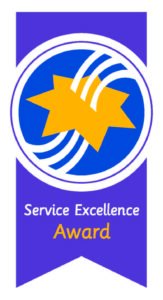The Alcohol, Tobacco and Other Drugs Council Tasmania (ATDC) says the time is right for a community conversation about the decriminalisation of personal drug use in Tasmania.
Acting CEO Jackie Hallam said there was considerable interest around Australia in decriminalisation, and in Tasmania research on community attitudes from 2019 had revealed that the vast majority of people felt that the use of cannabis should not attract criminal penalties.
“While there is still considerable work to do on this issue, the ATDC has long advocated for the removal of criminal penalties for people who are found with small quantities of illicit drugs for personal use,” she said.
“An individual’s illicit drug use should be seen first and foremost as a health issue.
“A lot of people keep their use quiet out of shame or fear and don’t talk about it. If decriminalised, people will be more comfortable to seek health advice related to drugs.”
Dr Hallam said it was critical to note that any changes to how drug use and possession were addressed in Tasmania would have flow-on effects for support services.
“The capacity of these services to handle extra clients will need to be assessed and addressed prior to making any legislative change to decriminalise personal drug use,” she said.
Last year the ACT became the first jurisdiction in Australia to legalise the possession, use and cultivation of small amounts of cannabis.
The ACT government then decriminalised small amounts of commonly used illicit drugs.
Under the ACT law, people found with small amounts of certain drugs that are considered to be personal possession are subject to fines rather than criminal charges.
Dr Hallam said alongside this legislative reform in the ACT was an increase in the investment in alcohol and other drug treatment services.
“This was a critical and vital component of the changes introduced,” she said.
In 2019/20, there were 166,321 drug arrests in Australia, including 2,790 in Tasmania – the vast majority of whom (85 per cent) were charged with use, possession or administering a drug for their own personal use.
Dr Hallam said decriminalisation was not the same as legalisation.
“Under a decriminalisation model that we would support, it would still be a criminal offence to produce illicit drugs and to traffic them,” she said.
Available for interview:
- Jackie Hallam – Acting CEO, ATDC – 0438 347 056
Media contact:
- Nicolas Turner – 0418 538 865
